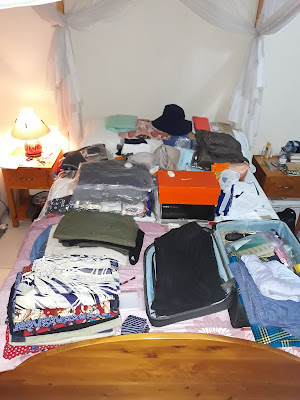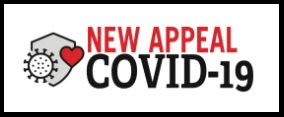It has now been a week since we once again hopped on an airplane and flew halfway around the world. However, this journey was anything but ordinary. First, it was coming three months later than had originally been planned. Of course, that’s what happens when you land in Canada for a home assignment right as a pandemic is exploding around the world! Second, as we finally return to Rwanda six-and-a-half months later, the pandemic is still ravaging much of the world.
In the days leading up to our departure, many people asked
us what it would be like to fly during COVID-19. Naturally at that point, we couldn’t yet
answer their questions. We could tell
them the many things we had to do before leaving, which included arranging to
have a COVID-19 test done no more than 120 hours before departing. (It turned out we had to show this document
each step of the way.) But, until we
actually did the journey, we didn’t know for certain what the experience was
going to be like – although we had some ideas of what to expect.
So now that we are safely back in Rwanda, it’s time to answer the questions. Here are the types of things we experienced:
Masks…all the time! From the time we entered the airport to go through security in Moncton, for the next 30 hours we had to keep our masks on. The only time we could take them off was when we were eating. That was a long time to wear masks continuously. Our great respect goes out to front-line workers and others who are having to wear those little devices for long periods at a time!
 |
| Goodbyes had to happen in the airport parking lot |
 |
| Masks on: Final goodbyes with Bronwyn & Caleb |
 |
| Our gate in Montreal only 10 minutes before boarding! |
Service with a smile, we think! The flight attendants are obviously in a position of higher risk, having to interact with so many passengers in order to look after their needs. So it makes sense for them to be wearing a higher level of protective gear. But to know it in your head is one thing. It is another to see the attendants on the Air Canada flights fully gowned up as they serve you a meal. (We’re quite sure there was usually a smile behind the mask.) Note: We were a bit surprised that on the Brussels Air flight from Brussels to Kigali they only had masks as their “extra equipment”.
 |
| Air Canada flight attendants serving a meal |
Prepackaged everything! Both times we stepped onto the Air Canada flights (in Moncton and in Montreal) we were handed a sealed plastic bag which contained several “necessities” in the context of the coronavirus. There was a small bottle of water, a mask, a bag of pretzels, two alcohol swabs, a wet wipe and a small bottle of hand sanitizer. All very handy. And their meals were different too. They were even more packaged than usual, with each item sealed individually. And there was no choice either – "one size fits all". Note: In contrast, the meals on the Brussels Air flight were the same as usual.
 |
| Cold meal in a box |
Different strokes for different folks! As it was in Canada, passengers respond to COVID-19 in different ways depending on their needs, personality, culture, etc. The rules clearly stated that masks must be worn, which everybody did – though it must be said that some only covered their mouth with their mask, and at least one woman balked at having to wear it on the plane. (Go figure!) But for some people, a simple mask was not enough. We saw everything from face shields all the way up to full body coverings!
 |
| Everyone turned to look at this passing group |
New arrivals. Our return to Rwanda was different from all previous arrivals. We landed at 12:45 am early Sunday morning. Once we had our visa and luggage, we were transported by shuttle to a hotel where a medical worker did another COVID-19 test on us. We then went to our room where we had to remain in isolation until we received word of a negative result from the test. Thankfully everything went smoothly and by 10 am on Monday we were finally home again – greeted warmly by our cat Messi and by all the unpacking and settling in needed after being away 6.5 months.
 |
| Laura Lee catching up on lost time with Messi |
 |
| And then it's time to unpack |




























